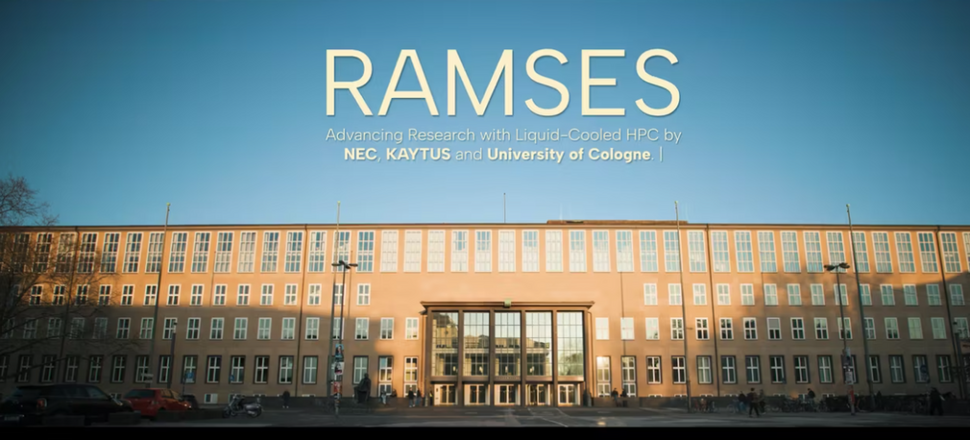
The new system, known as RAMSES (Research Accelerator for Modeling and Simulation with Enhanced Security), replaces the aging CHEOPS platform and marks a significant leap in Germany’s HPC capabilities for scientific research. The liquid cooling technology helped increase cooling efficiency of the data center by 30-40%.
Founded in 1388, the University of Cologne is one of Europe’s largest and most research-active institutions, hosting four Clusters of Excellence. Its Regional Computing Center (RRZK) has long supported computationally intensive projects across disciplines such as astrophysics, quantum physics, and genomics. RAMSES takes that mission further, offering 4.8 PFLOPs of computing power – 48 times more than its predecessor – through 174 nodes equipped with 384 CPUs (31,576 cores) and 74 GPUs. This architecture delivers 1.7 PFLOPs in CPU performance and 3.1 PFLOPs in GPU performance, enabling complex simulations, data processing, and AI-driven analysis at unprecedented speed and scale.
The system leverages KAYTUS’s latest liquid-cooled 1U2S nodes, each powered by dual AMD Genova processors drawing 400 watts per chip. Direct warm-water cooling removes heat from CPUs, memory, and voltage regulators, covering over 80% of system power consumption and cutting cooling costs by up to 40% compared to air cooling. Leak detection, automated shutdown, and extended component lifespan enhance operational reliability, lowering maintenance costs and downtime.
Sustainable, Secure High-Density Performance
The solution includes over 170 servers, more than 140 of them liquid-cooled, supported by cooling distribution units and liquid-cooled cabinets. Applications like Gromacs and NWChem will benefit from the increased density, efficiency, and scalability of this setup. Importantly, RAMSES is optimized for secure workloads such as clinical genome data analysis, employing end-to-end encryption, BIOS/BMC redundant design, encrypted drives, and secure data erasure capabilities.
University officials emphasized the strategic importance of RAMSES in enabling simulations that would be impossible to conduct in real-world conditions, such as modeling stellar phenomena or analyzing genetic patterns. NEC and KAYTUS executives highlighted the project’s role in addressing energy efficiency challenges for HPC systems as AI integration drives higher power demands.
With RAMSES, the University of Cologne positions itself at the forefront of European research infrastructure, combining high-density performance, sustainability, and security to support the next generation of scientific breakthroughs.

